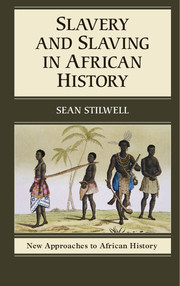1 - Defining Slavery, Defining Freedom
Published online by Cambridge University Press: 05 June 2014
Summary
Introduction
In 1819, Barka became dan rimi, a powerful, titled, and official position specifically for slaves in the government of Kano (a major city in the nineteenth-century Sokoto Caliphate – now northern Nigeria). In his capacity as dan rimi and over the course of roughly thirty years, Barka advised two emirs – Ibrahim Dabo and Usman – on matters of war, state, and politics. Barka had numerous wives and children all of whom occupied a special section of the palace; wore expensive and ornate robes of state; owned many horses; commanded soldiers; supervised tax collection; and became an absolute force in affairs of state. After his death, a number of Barka’s children became dan rimi and worked alongside numerous emirs at the highest levels of authority and power. He is well remembered today by his descendants in Kano, Nigeria.
Msatulwa Mwachitete grew up in Chitete, located in central East Africa, to the west of Lake Malawai, in the house of his father, who had twelve wives. Their home was attacked numerous times by Mkoma of the Inamwanga, who regularly carried off women and children into slavery after setting fire to surrounding villages. During one such attack, Msatulwa was captured, along with his mother and brother. He was taken some distance from his home and given as a slave to Mitano. Msatulwa was forced to grind corn, cut firewood, cook, hoe fields, and fetch water, but was eventually given to another person, who treated him better. In the end, Msatulwa found his way home after running away.
- Type
- Chapter
- Information
- Slavery and Slaving in African History , pp. 1 - 28Publisher: Cambridge University PressPrint publication year: 2014



